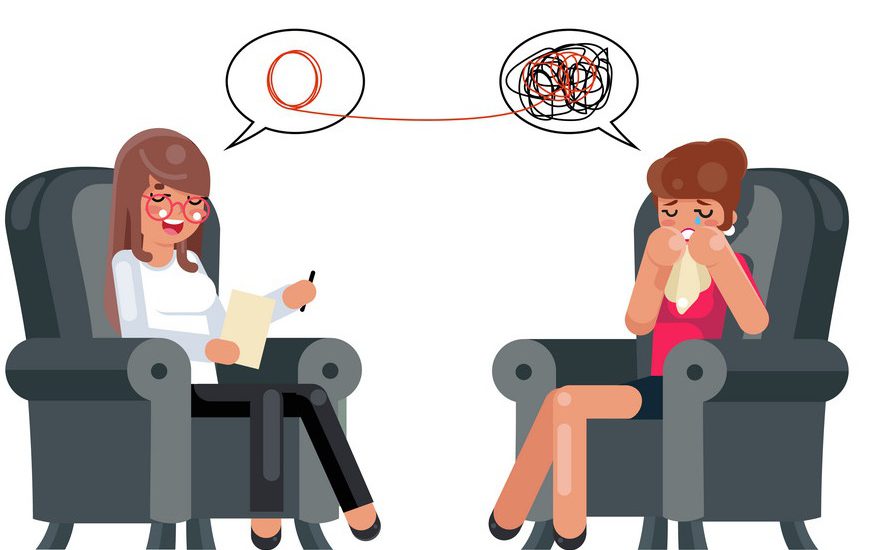Dedicated Psychologist Kew Services to Help You Overcome Obstacles
Wiki Article
Clinical Psycho Therapists Vs Psychiatrists: Trick Differences You Ought To Know
The difference between medical psychologists and psychiatrists is vital for individuals seeking mental health and wellness care, as each professional offers one-of-a-kind experience shaped by their academic backgrounds and treatment techniques. This difference increases important concerns about which specialist might be best suited for numerous psychological wellness needs.Educational History
Lots of individuals looking for psychological health solutions may question the differences in instructional histories between medical psychologists and psychiatrists. The differences are considerable and necessary for comprehending the functions each professional plays in mental health care., which requires extensive training in mental concepts, research study techniques, and medical technique. Additionally, clinical psychologists are required to get and complete a pre-doctoral teaching fellowship licensure, which includes passing a national examination.
On the other hand, psychoanalysts are medical physicians (M.D. or D.O.) who finish a four-year clinical degree followed by a residency in psychiatry, which lasts an added four years. Their clinical training equips them to recognize the organic elements of mental illness, allowing them to recommend medications and offer a medical perspective on treatment.
These varying instructional paths underscore the special proficiency each expert brings to the area, shaping their strategies to treatment, diagnosis, and patient treatment. Understanding these distinctions is vital for people navigating the mental health system.
Treatment Approaches
Diverse therapy methods identify the techniques of scientific psychologists and psychoanalysts, reflecting their distinct training and areas of know-how. Their emphasis is on psychological and psychological assessment, treatment, and the growth of coping methods to resolve different psychological wellness conditions.

Both specialists might team up in treatment plans, making sure thorough treatment that addresses the complexities of mental wellness. Ultimately, the option of treatment method may depend upon the nature of the condition, the choices of the person, and the specific competence of the medical professional included.
Function in Mental Health And Wellness Treatment

In comparison, psychiatrists are clinical physicians that focus on the diagnosis and treatment of psychological health and wellness disorders, frequently utilizing a biomedical strategy. They can suggest drugs to take care of psychological signs and are educated to consider the physical aspects of psychological health, such as neurobiology and pharmacology. This medical point of view allows psychoanalysts to deal with complicated cases that might require a mix of medicine management and psychiatric therapy.
With each other, clinical psychologists and psychoanalysts produce a detailed psychological wellness care structure, resolving both clinical and psychological demands. Partnership between these experts makes sure that clients receive holistic care, eventually boosting therapy outcomes and improving the top quality of life for people experiencing psychological health challenges.
Kinds Of Conditions Treated
While both medical psychologists and psychoanalysts resolve a vast array of mental health problems, their strategies and areas of competence typically determine the specific problems they treat. Clinical psycho view it therapists mainly focus on the analysis and treatment of emotional, behavior, and cognitive conditions through psychiatric therapy.In useful content contrast, psychiatrists are clinical doctors that can prescribe medications and have actually specialized training in the biological facets of mental wellness. They typically handle more intricate psychiatric conditions that may need pharmacological treatment, such as schizophrenia, bipolar illness, severe clinical depression, and substance make use of disorders. Psychoanalysts might incorporate medicine monitoring with psychiatric therapy yet typically concentrate on the medical and biochemical parts of mental wellness issues.
Comprehending these distinctions can help individuals look for the appropriate care customized to their specific mental wellness demands, guaranteeing they get one of the most reliable treatment for their conditions. elementa psychologists kew.
Insurance and Cost Factors To Consider
Browsing insurance coverage and price considerations is a critical aspect for individuals seeking psychological wellness solutions from scientific psycho therapists or psychiatrists. Both professions may accept different insurance policy strategies, yet the level of protection can vary significantly. Psychiatrists, that often prescribe medication, may have different billing methods contrasted to professional psycho therapists, that typically concentrate on psychotherapy.Insurance compensation for psychological services could be much more desirable because of the clinical nature of their practice. Clients might come across greater co-pays or deductibles when seeking advice from useful source a psychiatrist. In contrast, medical psycho therapists might give solutions billed under psychological health and wellness benefits, which can cause lower out-of-pocket prices, depending on the insurance provider's policy.
In addition, people ought to consider the regularity and period of therapy sessions when examining expenses. While psychiatrists could use shorter, medication-focused visits, professional psycho therapists typically participate in longer sessions dedicated to healing methods.
Ultimately, recognizing the particular regards to one's insurance coverage plan, consisting of network availability, protection limitations, and pre-authorization requirements, is crucial. Individuals are encouraged to contact their insurance service provider to clarify advantages and explore alternatives for budget friendly mental healthcare.
Verdict
In summary, the distinctions in between professional psychologists and psychoanalysts are essential for notified choices concerning psychological healthcare. Educational background, treatment techniques, and roles in mental health and wellness significantly differ in between both professions. While scientific psycho therapists mainly concentrate on psychiatric therapy, psychiatrists integrate medicine monitoring into their technique. Understanding these distinctions improves the capacity to pick the suitable specialist based upon private requirements, whether they entail treatment, medication, or a combination of both for optimal mental health and wellness end results.The distinction in between professional psycho therapists and psychoanalysts is critical for individuals seeking psychological health treatment, as each specialist deals special expertise formed by their academic histories and treatment approaches.The roles of clinical psycho therapists and psychoanalysts in mental health care are complementary, showing their distinct training and proficiency.While both clinical psycho therapists and psychoanalysts deal with a vast array of mental health problems, their strategies and areas of knowledge frequently determine the certain conditions they deal with.Browsing insurance policy and expense considerations is a critical element for individuals looking for mental wellness services from clinical psycho therapists or psychoanalysts.In summary, the differences between scientific psychologists and psychoanalysts are essential for educated choices concerning psychological health treatment.
Report this wiki page